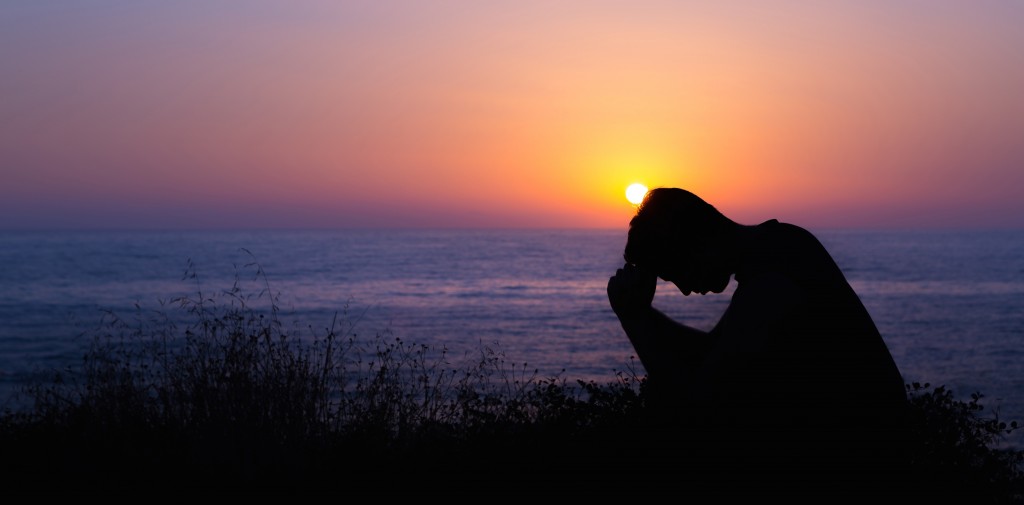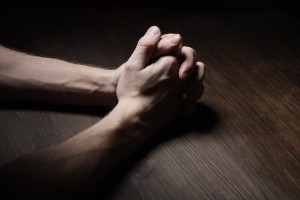
If you asked a class of MBA students whether they’d rather be seen as powerful or humble, you can guess the answer.*
Nobody I remember in the hallowed halls of B-school wandered around asking “How can I be humble?” We wanted to know how to be powerful.
Saying the word humble brought up images of meekness, subservience, passivity – not the stuff of leaders.
* Now some of you may be objecting to my unfair forced choice question but don’t worry – MBA students are used to it!
One famous management writer, Jim Collins, dared to suggest that leaders can be powerful and humble, in his great article: Level 5 Leadership: The Triumph of Fierce Humility.
Cool idea but who walks around like that?
At a recent talk I attended, I heard the story of one man who does. His story was spellbinding.
Picture this: a man is about to come out from behind a curtain onto a small balcony, to stand before a cheering audience of thousands packing the plaza below – a crowd teaming with excitement, waiting for the name of the man who is going to rule part of their world.
He walks out – they hear his name: Francis.
The new Pope.
The crowd is used to seeing Popes on the balcony bedecked in the trappings of their office: red cloaks, gilded vestments, and gold jewelry and adornments.
But the person they see before them is standing unadorned in white vestments, with a simple silver cross, and silver ring. Surprisingly he invites the cheering crowd to stand for a moment in silence and, surprisingly, this noisy group of Italians and international guests complies.
He asks for them to pray for him, a sinner. This new pope has chosen a name never before been used by a pope – that of Saint Francis – champion of the poor.
The world starts to buzz: this Pope Francis seems different.
With the announcement of his papacy, the media spins into high gear: who is this Pope, the man who was Jorge Mario Bergoglio in Argentina?
News quickly starts to surface from his homeland and it’s not all positive.
His detractors say that he was:
- Autocratic, non-collaborative, and devisive.
- Non-sympathetic to Liberation theology, that branch of Latin American Catholicism that wants to bring justice to the poor.
- A colluder with the leaders of the evil “dirty war” in which the ruling military junta “disappeared” more than 30,000 civilians. Worse yet, he is accused of not doing enough to protect two priests from the slums who were tortured by the military.
Not a pretty picture.
In a recent visit to Seattle to talk about his biography of Pope Francis, the English journalist Paul Vallely, put me on the edge of my seat as he described his journey to Argentina to uncover the truth about Bergoglio’s past.
What he discovers is complicated.
- √ Bergoglio’s early leadership style was both autocratic and divisive.
- √ He originally opposed the proponents of Liberation Theology.
- X He didn’t collude with the junta or support the “dirty war”.
- √ His actions probably made his priest colleagues in the slums more vulnerable to being captured.
Vallely learns that the Vatican had to pull Bergoglio, deemed too divisive a leader, out of Argentina and send him to Germany.
When Bergoglio returns to Argentina, he is assigned a role as confessor and spiritual director role in Cordoba, an outpost far from Buenos Aires. Not a power position.
But in Cordoba, something happens.
Bergoglio starts to change from the inside out. He reflects. He prays. He reviews his life. He is stricken by the consequences of some former actions. He begs God for mercy.
He “repents” in the Greek sense of the word: to have “a transformative change of heart,” “a change of mind”, and “to turn towards the light.”
When he returns to Buenos Aires to become Bishop, he is a changed man:
- He collaborates
- He chooses to live simply in an apartment rather than a palace.
- He cooks his own food; he rides the subway.
- He is friendly to liberation theology.
- He spends so much time among the poor that he is called the “Slum Bishop”.
- He is humble.
This is hard won humility, not the unworthiness or falseness that can masquerade as humility.
Like when you say “congratulations on completing one tough job” to a friend and he responds, “Oh no, it wasn’t anything.”
Bull. That’s not humility.
As Maya Angelou said: “Whenever I’m around some who is modest, I think, ‘Run like hell and all of fire.’ You don’t want modesty, you want humility.”
I’m not Catholic, but I’m thrilled to have an example of someone who actively developed humility.
To do so takes courage, because finding humility requires acknowledging our humanity and the darker sides of our nature. Finding humility means battling the dragons of self-absorption that often consume us and then striving for, begging for, praying for, and working for one’s personal transformation.
Real humility requires real desire followed by real action.
Real humility is fierce.
And although I didn’t learn this in B-school, real humility is at the core of leadership.









